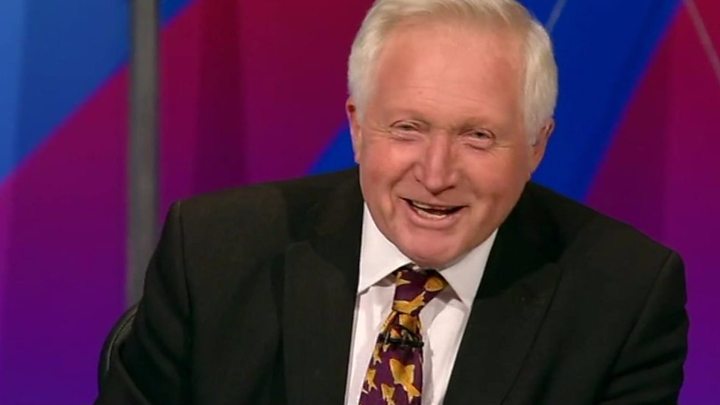What now for ‘Question Time’?
After 25 years in the chair, David Dimbleby has announced that he is stepping down as the host of Question Time – Dimbleby will remain until the end of the year, at which point a new host will take over. But who should it be? And will a new host offer Question Time the opportunity to make some much-needed changes?
Question Time began in 1979, and was originally intended as a television version of the Radio 4 staple Any Questions? – it was meant to have a short run, but audience popularity meant the show was extended. Since 1998, it has featured a panel of five guests (representing different political parties, specific viewpoints related to issues at the time or public figures), who take questions from the audience and debate each other. It’s simple and, depending on the guests and the subjects discussed, it can be really interesting.
Outside of election years, which normally see special editions interviewing the party leaders or other key figures, the show doesn’t really reach a wide audience. The last time was in 2009 when then-BNP leader Nick Griffin was invited on the programme – despite criticisms that Griffin having a platform could attract more people to his cause, he was in fact denounced by the panel and rendered a politically null force.
Nowadays, discussions of the programme inevitably focus on bias – no matter which sides you’re on, it’s biased against you. This has crystallised since Brexit. If you support Remain, the fact that Nigel Farage appears and old white men are allowed to ask questions and have concerns too (the internet have termed them ‘gammon’) is proof that Question Time is pro-Brexit. For pro-Brexiteers, the fact that the show’s panels are almost always full of Remainers (figures from September 2017 showed that Remainers outnumbered Leavers 86% of the time ) displays an explicit anti-Brexit bias.
Every article I’ve found about this stresses that the BBC is very keen the next host should be a woman
So, this is Question Time under Dimbleby – but who should take over? A list of runners and riders has been assembled from the cream of BBC broadcast talent, with names like Kirsty Wark, Andrew Neil, Victoria Derbyshire, Samira Ahmed and Mishal Husain near the top. Wark is the frontrunner. Every article I’ve found about this stresses that the BBC is very keen the next host should be a woman, especially after their recent wage equality issues – Wark, a Newsnight veteran who has spoken out about the marginalisation of older women in the media, possesses both the necessary chairing skills to take over and PR potential the Beeb could use. She’s the likeliest, I think – whether or not she’d be the best is a different question.
Choosing who should be the next host does, however, come second to a far more important question – should the show continue at all? The show is tucked away in a dead-end time slot, and the discussions are rarely insightful or interesting. They certainly don’t hit the news in the same way a politician speaking on Marr or the Daily Politics can – the format, especially with five talking heads and the need for balance, simply doesn’t lend itself to the kind of analysis and discussion that some of the issues require.
You also have to consider that we live in a different world nowadays. When Dimbleby took over as the presenter in 1994, Question Time was one of the few formats that allowed the public to engage with political figures. But now, you can whack out your phone and tweet your MP – hell, this is a time when a well-directed tweet could possibly attract the attention of the US President! The internet has opened up politics to everybody, for better or for worse, and Question Time feels like a relic of a bygone time when getting non-answers from political figures was the best you could hope for.
Introduce a real-time fact checking process, so some of the more blatant untruths on all sides can be called out
Question Time at the moment is dull and formulaic, but it has potential – it needs a bit of a revamp. There are a number of ways this could run – shift it to an earlier time slot, and make it long enough that substantial discussion can occur. Introduce a real-time fact-checking process, so some of the more blatant untruths on all sides can be called out. Or, I would suggest, adopt the leaders’ Question Time model – partition the guests, and let the audience interview them one at a time, rather than on a panel when time commitments mean they can get away with not answering.
The show is now at a crossroads – politics is becoming more important and more widely-discussed than ever, and Question Time should capitalise on this. Whether it will, or whether it chooses to remain on the same path, will be a good sign of whether the new host’s Question Time will be worth watching after Dimbleby finally stands down.

Comments